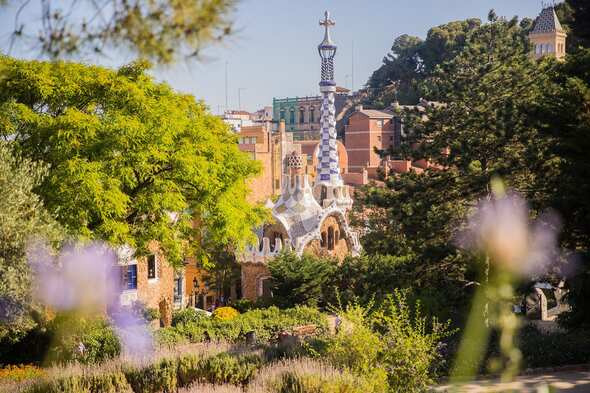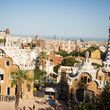Gaudi Garden Barcelona: Park Güell the most visited!
The alleys, paths and viaducts of Park Güell
Of all the gardens in Barcelona, Park Güell is the most visited for both its monumental area and its free section. Catalans appreciate it for its calmness and its vegetation. Tourists like it for its alleys, paths, and viaducts, another of Gaudi's creations.
Let's not forget that the park is a tribute to nature. Before its transformation, this mountain was called the "bare mountain" because it was deforested at that time. With the construction of Park Güell, Gaudí introduced a multitude of plants and Mediterranean vegetation, as well as a whole system of human and water circulation. Today, it is the most visited garden in Barcelona.
The Austrian Gardens of Park Guell
Currently known as the Gardens of Austria, these gardens were once intended to be plots of urbanisation. When Park Güell became a public park, this area was turned into a municipal nursery. The name Gardens of Austria comes from a donation of trees from Austria in 1977 on the occasion of the "Vienna to Barcelona" exhibition.
The garden offers beautiful views and from its centre we can see the two houses built in Eusebi Güell's time, the house of the lawyer Martí Trias i Domènech designed by the architect Juli Batllevell and the pilot house of the urbanisation, the work of Francesc Berenguer, which was later bought by the Gaudí family to make it their residence and which is now the Gaudí house-museum.

The three viaducts
Gaudí designed a series of three viaducts for the park so that cars and people could move around safely. These viaducts are perfectly integrated into the terrain and were designed not to alter the natural aesthetics of the park.

These three five-meter wide viaducts lead to the Three Crosses hill. A ten-meter wide transverse road links Carmel road to the exit for Sant Josep de la Muntanya.
The alleys and paths of Park Güell
Gaudí also designed three-meter-wide footpaths and shortcuts with stairs and slopes to allow direct access to the different plots.

Finally, an important axis of this urbanisation is its transverse street, which is ten meters wide and connects Carmel road and the exit for Sant Josep de la Muntanya.

